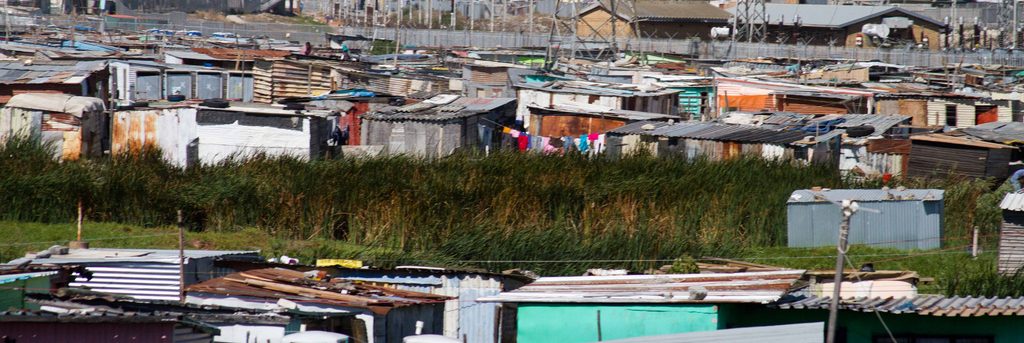Join our immersion and business development workshop on March 8, 2019 in Cape Town!
APPLY HERE
Townships as we know them
During your trip to Cape Town, you are likely to pass Khayelitsha, one of South Africa’s largest townships. As residential areas formerly reserved for Blacks under the apartheid system, townships form a core part of South Africa’s history and urban landscape. What visitors would see from the roadside are the sprawling informal settlements: shacks made of corrugated iron, cardboard and wood, tightly stacked next to each other. Residents are typically faced with multiple social and economic issues, such as the lack of access to health care, clean water, sanitation, decent housing and energy. Unemployment, poverty and crime are rampant. But there is much more to the townships than this.
A change in perspective: a bustling and entrepreneurial place
Indeed, townships are complex, diverse places, ideal for taking South Africa’s pulse. They bustle with economic activity, with thousands of informal retail shops, open-air eating places, hair-salons and surprisingly innovative small businesses catering for the local market. Residents range from 5th generation city dwellers to people who only just arrived from neighbouring countries in search of opportunities, with vastly differing income levels, lifestyles, and aspirations. One angle from where to find out more is health care.
Healthcare in townships: expensive and ineffective
While public health services are available in many South African townships, they are not necessarily effective. Patients often wait long hours to get attended to, sacrificing a day’s income, only to find out the needed medicine is out of stock. Many thus opt for private health providers, including traditional healers
Digital health solutions: a business opportunity
Innovation in healthcare has helped to bring costs down, while increasing quality. From portable diagnostic devices to AI-supported decision making for health workers, opportunities are manifold. And indeed, many social entrepreneurs have already shown that offering healthcare services for those who need them most can be a business opportunity. To be successful in South Africa, health providers need to know how to tailor their offer to the business ecosystem of townships.
Our offer: Explore Khayelitsha to identify opportunities
Join us on an exclusive learning journey to explore Khayelitsha’s health ecosystem! How do the lower- and middle-income patients there seek healthcare? What do private practitioners or traditional healers offer? Which opportunities do health workers see to improve access to healthcare? Our 1-day program offers opportunities to meet and interview various stakeholders from the health ecosystem. We will wrap-up the day with a co-creation workshop to identify business opportunities that also create social value.
Our vision: the Urban Leap
For too long, populations living in poverty have been caught in intergenerational cycles of marginalization and poverty. To address this, Endeva and Reciprocity are designing the “Urban Leap” initiative: We aim to build sustainable communities through a co-creation process that involves all relevant stakeholders. At the center of Urban Leap are businesses which address the lack of access to basic services, and mutually reinforce each other. Khayelitsha will be one of the pilot sites. Be part of the early stages of developing the “Urban Leap” by joining our learning journey!
Interested? Want to know more? Apply here!
The workshop will be organized by Endeva and Reciprocity.


